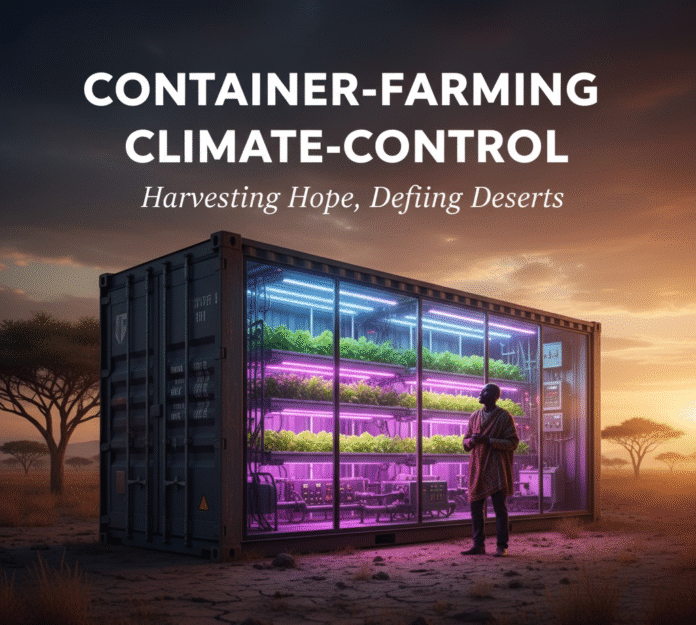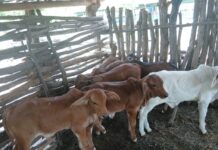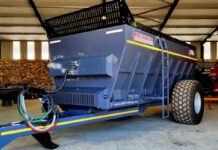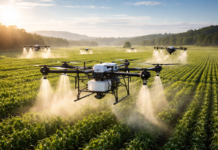According to Research intelo ,the Global Container-Farming Climate-Control market size was valued at $1.4 billion in 2024 and is projected to reach $5.8 billion by 2033, expanding at a robust CAGR of 17.2% during the forecast period of 2024–2033. The accelerated adoption of advanced climate-control technologies in container farming is a primary driver, enabling year-round crop production regardless of external weather conditions. This surge is fueled by the growing demand for sustainable, space-efficient farming solutions capable of addressing food security challenges in urban environments. The integration of IoT, AI-driven monitoring, and automation not only optimizes crop yield but also minimizes resource consumption, making container-farming climate-control systems an essential component in the future of agriculture.
A New Dawn for African Agriculture
Across Africa, farmers are rewriting the story of food security transforming challenges into opportunities using innovation once thought impossible. One of the boldest of these innovations is the Container-Farming Climate-Control Market, a sector rapidly gaining momentum as climate change reshapes the way Africa grows its food.
Imagine stepping into a 40-foot steel container in the middle of a bustling African city or remote village and discovering a lush, climate-controlled farm inside. Rows of green vegetables, herbs, or specialty crops flourish under LED lights, nourished by nutrient-rich water rather than soil. That is the power of container farming, and now, climate-control technologies are pushing it into the future.
Why Africa Needs Climate-Controlled Container Farms More Than Ever
- Battling Climate Uncertainty
Heatwaves, droughts, floods, erratic rainfall African farmers face a climate rollercoaster. Container farming offers predictability, something traditional farming can’t guarantee anymore. With precise temperature, humidity, and CO₂ control, farmers can produce consistent harvests year-round.
- Growing Food Where It Was Impossible Before
Urban rooftops. Desert communities. Refugee settlements. Drought-prone regions.
Container farms turn previously non-productive areas into thriving agricultural hubs.
- Cutting the Distance Between Farm and Plate
Africa imports billions of dollars’ worth of food annually. With container farming, fresh produce can be grown right next to markets, restaurants, and hospitals reducing spoilage, transport costs, and carbon footprint.
Inside a Climate-Controlled Container Farm: How the Magic Happens
- Smart Climate-Control Systems
These systems monitor and adjust:
- Temperature– keeping crops cool even under desert heat
- Humidity– preventing disease and ensuring healthy growth
- Airflow– circulating fresh, clean air
- CO₂ Levels– enhancing photosynthesis for faster growth
Everything is controlled through AI or mobile apps, meaning farmers can manage the farm even when they’re miles away.
- LED Lighting That Mimics the Sun
Full-spectrum LED lighting ensures crops get the “sunrise-to-sunset” experience even at night or during storms.
- Hydroponic & Aeroponic Systems
Using 90–95% less water than soil farming, these systems are perfect for water-scarce African regions.
- Energy Efficiency
Solar panels and battery systems help power farms sustainably, keeping operational costs low.
The Market: Why Investors and Governments Are Paying Attention
The Container-Farming Climate-Control Market in Africa is growing fast due to:
- Increasing Demand for Year-Round Fresh Produce
Urban populations want fresh herbs, leafy greens, and berries even during dry seasons.
- Government Push for Food Security
Policies and incentives are emerging to support modern farming technologies.
- Rising Need for Climate-Resilient Agricultural Solutions
Countries like Kenya, Nigeria, South Africa, Morocco, and Ghana are exploring climate-smart agriculture to future-proof food production.
- Opportunities for Youth Employment
Africa’s youth can tap into tech-driven agriculture no large land or heavy machinery required.
Where Container Farming Fits Best in Africa
- Urban and Peri-Urban Farming
Cities like Nairobi, Lagos, Johannesburg, and Accra are ideal markets where demand for fresh produce is constant.
- Arid and Semi-Arid Regions
Northern Kenya, Namibia, Somalia, Botswana, and parts of Morocco can produce crops regardless of harsh climates.
- Remote Communities and Islands
Container farms bring food production closer to isolated populations.
Benefits That Africa Cannot Ignore
✔ High Yield in Small Spaces
One container can produce the equivalent of 1–3 acres of traditional farmland.
✔ Drastic Water Savings
Up to 95% less water makes it ideal for drought-prone areas.
✔ Zero Pesticides
Controlled environments reduce pests, improving food safety.
✔ Fast Crop Cycles
Some vegetables grow 2–3 times faster.
✔ Youth-Friendly Agribusiness
Tech-driven, clean, and high-income potential perfect for Africa’s emerging entrepreneurs.
Challenges and the Innovation Closing the Gap
- Initial Setup Costs
Though expensive, prices are dropping as local African manufacturers enter the market.
- Energy Reliability
Solar-powered systems are solving this, making farms fully off-grid.
- Skills and Training
Agritech hubs across Africa are now offering programs to equip farmers with climate-control and hydroponic skills.
Competitive Landscape: What’s Shaping the Future
- Freight Farms
- GrowPod
- Agricool
- Inno-3B
- Urban Crop Solutions
- CropBox
- Modular Farms Co.
- Square Roots
- Container Farms Ltd.
- Pure Greens
- Vertical Farm Systems
- FarmBox Foods
- Altius Farms
- Green Sense Farms
- GP Solutions
- Ekonoke
- AeroFarms
- Infinite Acres
- ZipGrow
- Ponics Technologies
The Future: Africa as a Global Leader in Smart Agriculture
According to Research intelo ,As climate change intensifies, Africa has an opportunity not just to adapt but to lead the world in sustainable, climate-resilient agriculture. Container farming and climate-control technologies are no longer futuristic ideas; they are already feeding communities, supporting businesses, and inspiring a new generation of African farmers.
This market will continue to grow, opening doors for:
- Green jobs
- Export-grade produce
- Tech-driven agribusiness
- Food security breakthroughs
In a continent where land, climate, and resources are unpredictable, container farming provides something priceless: certainty.
Source:- https://researchintelo.com/report/container-farming-climate-control-market








